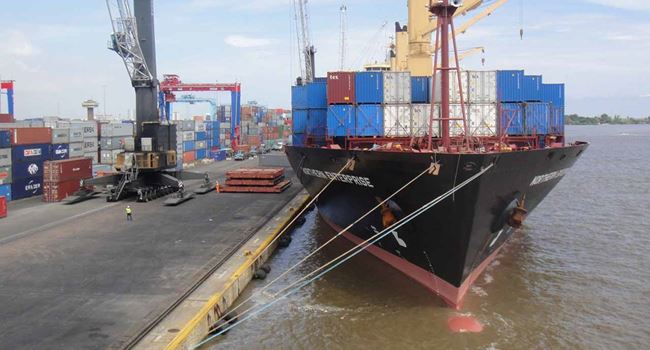Business
Poor management of seaports costs Nigeria $7 billion annually, says House of Reps

The poor management of the various seaports in Nigeria is estimated to be costing a significant economic loss in the region of $7 billion annually, the House of Representatives has disclosed.
Two members of the House of Representatives, Hon. Julius Ihonvbare and Hon Ibrahim A. Isiaka disclosed this in their joint motion at the resumption of plenary on Tuesday, December 19, 2023.
They lamented that Nigerian seaports receive barely 10% of West African imports out of 60 percent destined for Nigeria, while others are lost to neighbouring countries.
The two lawmakers said there was the need for the House to carry out a comprehensive investigation to unravel the gaps and opportunities lost by the country annually.
“Nigeria’s seaports receive barely 10% of West African imports out of 60 per cent destined for Nigeria, a significant economic loss due to poor management and inefficiencies, estimated to cost $7 billion annually,” the motion stated.
Ihonbvere pointed out that the maritime sector is crucial for the survival of the country’s economy, while noting that the under-utilization of seaports outside Lagos has significantly affected the sector’s contribution to Nigeria’s revenue and Gross Domestic Product (GDP).
“Most ships bringing goods to Nigeria prefer to go to other ports order than Nigerian ports. Indeed the Benin Republic benefits from Nigeria’s large market, while Cotonou remains a popular importer’s haven, huge trade cargoes are lost to Togo and other neighbouring countries.
“Why is the nation unable to provide adequate infrastructure and reduce pressure on Lagos ports and why the Calabar, Port Harcourt, Warri, and Koko ports cannot be developed as a haven for importers in the region?
READ ALSO:Nigerian govt approves N20bn for fire trucks, facility upgrade at Lagos seaports
“The lack of adequate infrastructure and capacity in the growing cargo and maritime business is a significant issue,” Ihonbvere said.
Furthermore, the lawmaker revealed that the Apapa Port in Lagos had lost West Africa’s leading position to the Port of Lomé due to congestion and poor-quality services to shippers.
“Port of Lomé, with a capacity of 1.1 million twenty-foot containers, overtook Lagos Port due to Modernization reforms which tripled its capacity from 311,500 containers to 3.1 million, thus making ‘Togo’s Port of Lomé becoming a regional transit hub.”
“Nigeria’s Apapa Port, Lagos, which handles about 1 million TEU annually, lost 30 percent of its container traffic for over five years due to several factors bedeviling its inability to deliver efficient services to cargo owners.
“This explains why Nigerian ports have remained inefficient over the years. Also, Nigeria’s major seaports in Lagos do not have deep draughts to handle bigger vessels,
“While Port of Lomé has a depth of 16.60 meters and capacity to accommodate third-generation ships Apapa port operates with a 13.5 meters draught that can only allow vessels with about 4,000 TEUs of containers to call the port,” the lawmaker explained.
The House thereby directed its Committees on Port and Harbours, National Planning and Economic Development, Maritime Safety Education and Administration, and Nigerian Shippers’ Council to look into ways to identify the gaps militating against the full realization of the economic advantage of ports, harbours and another blue economy in the country.
Join the conversation
Support Ripples Nigeria, hold up solutions journalism
Balanced, fearless journalism driven by data comes at huge financial costs.
As a media platform, we hold leadership accountable and will not trade the right to press freedom and free speech for a piece of cake.
If you like what we do, and are ready to uphold solutions journalism, kindly donate to the Ripples Nigeria cause.
Your support would help to ensure that citizens and institutions continue to have free access to credible and reliable information for societal development.












